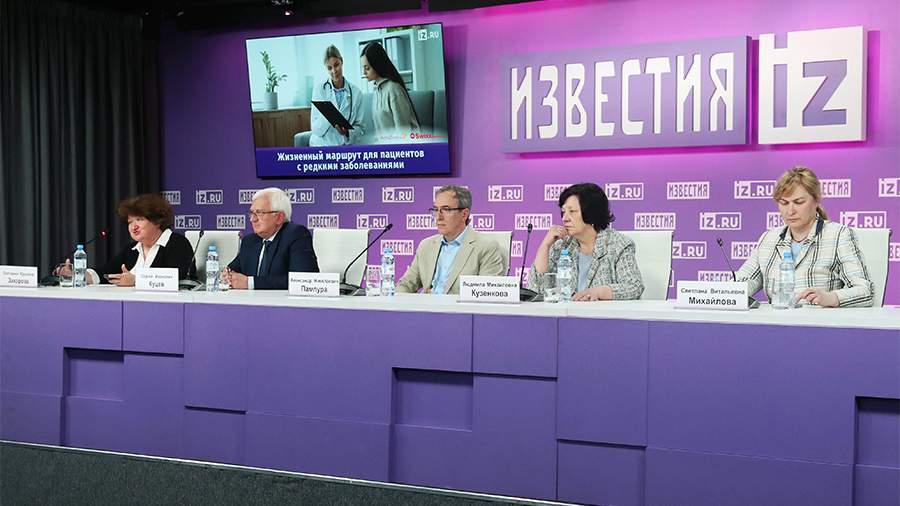The expansion of government programs will allow timely treatment of severe orphan diseases
- Новости
- Press releases
- The expansion of government programs will allow timely treatment of severe orphan diseases

The All-Russian Society of Rare (Orphan) Diseases (BOE) organized a discussion on the need to create a life route for patients with rare diseases at the Izvestia press center.
Well-established routing for children from the neonatal period makes it possible to effectively detect rare diseases before the onset of clinical symptoms, helping a large number of children and should be further developed, says Ekaterina Zakharova, Head of the Laboratory of Hereditary Metabolic Diseases at the N.P. Bochkov Medical and Genetic Research Center, Chairman of the Expert Council of the Higher School of Economics.
Expanding neonatal screening for X-linked adrenoleukodystrophy, aromatic L-amino acid decarboxylase deficiency, Duchenne muscular dystrophy, and then lysosomal storage diseases will not require additional budget costs, said Sergey Kutsev, Director of the N.P. Bochkov Medical and Genetic Research Center, chief freelance specialist in medical genetics Ministry of Health of Russia
Early diagnosis and timely treatment are very important, they help prevent the development of irreversible changes in orphan patients, says Svetlana Mikhailova, neurologist, Head of the Department of Medical Genetics at the Russian Children's Clinical Hospital
Further, for the continuity of treatment during the patient's transition to an adult network, patient routing, close interaction between regional and federal centers, and unified clinical recommendations will be required, says Lyudmila Kuzenkova, head of the Department of Neuropsychiatry and Psychosomatic Neurology at the National Research Medical Center for Children's Health of the Russian Ministry of Health.
For example, patients with hereditary angioedema need a well—defined route, especially in critical situations with life-threatening attacks that up to a third of these patients face during their lifetime," said Alexander Pampura, Deputy Director for Research, Head of the Department of Allergology and Clinical Immunology at the Veltischev Institute.
By 2027, children with 22 diseases for which therapy is registered in the Russian Federation will leave the Circle of Good Foundation. In order for children to continue therapy regardless of disability, these diseases must be immersed in PP403. The source of financing for the regions will not change, but the subjects will be able to count on receiving subsidies. The mechanism for allocating subsidies for the co-financing of PP403 is being developed, says Natalia Smirnova, a lawyer at the BOE.
Переведено сервисом «Яндекс Переводчик»
